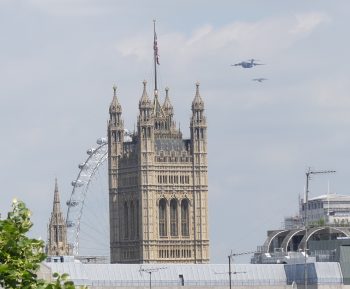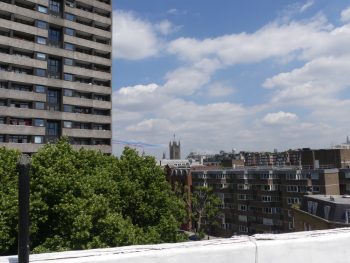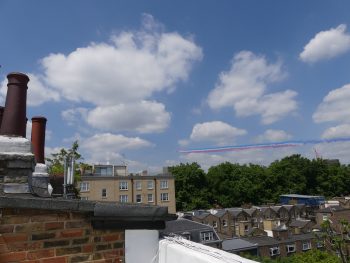BBC Radio 4 puts out a well-regarded programme on statistics called “More or Less”, in which presenter Tim Harford looks at uses and abuses of statistics. The most recent episode was a topical one covering the general election just past.
Here’s a link to the “Post-Election Special” on BBC iPlayer: http://www.bbc.co.uk/programmes/b08wr7ss
That link won’t last long and may not be playable outside the UK. Downloads of this and other episodes will be available indefinitely here.
If you cannot or prefer not to listen to the programme, I have transcribed the section I wanted to post about below. Typing it all out was slow work. I bothered doing the work for two reasons.
One, the BBC came much closer than it usually does to saying out loud that that the Labour Party knowingly lied on an important matter during the election campaign. We can tell with unusual clarity that Labour knew they were lying because they were lying in exactly the same way that the Tories had lied in 2010, only then the Tories were called out on it.
Two, that there has been an interesting change in the chances of such a lie being challenged before it is too late. When the Tories were telling this particular lie in 2010, they were doing so in the pages of the press and on TV, seen by millions all at once – and talked about all at once. But when Labour told their equivalent lies in 2017, they did it on Facebook posts that are passed between individuals. Though a great number may eventually see the original video, they do so as individuals. If they find it convincing, they pass it on to other individuals, and there is no reason why the recipient should be any better informed than the sender. Compared to a broadcast or news article, or even a blog post, it is less likely to come to the attention of those who know enough to rebut it. Even if it does and they do, the rebuttal is less likely to ever come to the attention of those who saw the original.
Often this sort of campaign by social media ends up as “a tale told by an idiot; full of sound and fury, signifying nothing”. People who already agree with each other are stimulated to agree ever more vehemently only to discover the morning after the election that the people who didn’t already agree weren’t listening. However when, as in this case, the video appears to be heavy with facts and to come from a non-partisan source, it can work very well.
Time I got round to talking about the specific claims at issue. The section of the election episode of “More or Less” that I’m interested in starts at 17:35 and lasts until 23:06.
Tim Harford, the presenter, says,
“It is widely believed that the youth vote boosted the Labour party and one of the things that may well have been influencing young people were viral videos on social media. In the last few days before the election, we were contacted by a loyal listener who had seen one of these videos. It was on Facebook and it was being promoted by the Labour party. And it had received 1.4 million views.
“Unfortunately we weren’t able to get to it before the election, but these elections seem to be a bit like buses; there may well be another one along in a minute. And in any case, there’s never a bad time to talk about the truth.
“The video in question featured an event where an official from the trade union Unison, Ben Priestley, was giving a speech. Mr Priestley represents union members who work for the police or as prison officers, and he was sitting next to Shadow Cabinet minister Keir Starmer.
“Here’s a clip from the speech.”
We then hear the voice of Ben Priestley saying,
“Since 2012/13 there’s been a 29% increase in possession of weapons. This is police recorded crime. These are the crimes that the police themselves, through a rigorous process, have deemed to be crimes. A 29% increase in possession of weapons. A 65% increase in violence against the person. A 38% increase in assault with injury. Sexual offences are up 97%. Public order offences are up 54%.
“Now, if those figures weren’t shocking enough, this government which has claimed repeatedly, and also claimed in the Conservative party manifesto, that crime is falling. But nothing could actually be further from the truth. The government relies on the Crime Survey for England and Wales, which is an opinion poll which disregards homicide, it disregards sexual offences, it disregards crimes against business. It is a very, very small proportion of overall crime.
“So the government relies on those figures to tell the electorate that crime is falling, whereas recorded crime figures tell exactly the opposite story.”
Then it cuts back to Tim Harford, who says,
“Strong stuff. And Jeremy Corbyn’s twitter account tweeted a link to the speech with the text ‘Watch: national police officer Ben Priestley destroys Tory lies on crime rates.’
(Here is that video: https://www.facebook.com/JeremyCorbyn4PM/videos/1707133912914014/. Note that Ben Priestley is not a “national police officer” in the sense of being a policeman himself. He isn’t even a trade union representative for police officers, who are forbidden to join ordinary trade unions. Mr Priestley is Unison’s National Officer for Police and Justice, dealing with the workplace rights of civilian employees of the police. Whether intentionally or not, the description of him as a “national police officer” in Jeremy Corbyn’s video stream was misleading.)
Hartford continues,
“But are they lies? The accusation here is that the government is ignoring police recorded crime statistics and relying on the Crime Survey for England and Wales and that this is a lie because police recorded crime is a better measure. But that’s wrong. Neither method is perfect, but most crime stats nerds will tell you that the survey is better.
“The UK Statistics Authority looked at police recorded crime statistics in 2014 and decided that they were so unreliable that they should no longer be counted as an official national statistic. On the other hand, the Crime Survey for England and Wales is an official national statistic. It is not a small ad hoc opinion poll, it’s a nationally representative survey that measures the extent of crime by asking households whether they’ve experienced any crime in the last twelve months. In 2016/2017 approximately 50,000 households will be selected to take part in this research.
“And it’s just bizarre to suggest that it covers a very, very small proportion of overall crime because it captures more than twice as many crimes as the police data.
“But what about the shocking figures that the video quotes from the police recorded crime stats? Is that a true rise in crime or just a rise in the recording of crime? Since the Statistics Authority criticised the police recording of crime stats there’s been a big rise in the reporting of crimes that the police were not recording properly, such as low level violence and public order offences. The Office for National Statistics is very clear. They say, ‘Due to the renewed focus on the quality of crime recording by the police, this crime series is not currently believed to provide a reliable measure of trends, owing to the ensuing efforts of police forces to tighten recording practice and improve recording processes.’
“So the video suggests crime is rising by using cherry-picked, unreliable statistics, while dissing the more reliable statistics that serious policy wonks pay attention to. The true picture? Well, I think we got that from the crime policy writer Tom Gash, earlier on in our series. ”
Tom Gash then speaks, saying,
” I think what we’ve seen over the last twenty five years is this very, very steady fall in crime. Over the last two or three years we’ve certainly seen a plateauing of that fall in crime in a number of areas, but particularly in terms of serious violence.”
Back to Tim Harford, who concludes,
“These videos are important. You often see them after your friends share them, so they come with a recommendation.
“What’s interesting about this claim of Tories lying about crime figures is that Labour politicians weren’t making it in debates or in political interviews. It was made in a Facebook video of a press conference, where it was far less likely to be challenged.
“In 2010, the then Conservative shadow Home Secretary, Chris Grayling, made a similar criticism about crime under the Labour government, using police recorded crime stats rather than the Crime Survey. But because his claims were made in a more public forum they were rebutted by the then Home Secretary Alan Johnson, and in a letter from Sir Michael Scholar, then Chairman of the UK Statistics Authority, who said, ‘I must take issue with what you said yesterday about violent crime statistics, which seems to me likely to damage public trust in official statistics.’
“But in the era of social media, all political parties can make claims that are far less likely to get properly examined – unless, of course, our loyal listeners put us on the case. ”
One might wish they had got round to following up on what their loyal listener had alerted them to before the election.
Remember it was mentioned that the man who was sitting next to Ben Priestley when he made that speech was Keir Starmer, or to give him his proper title, Sir Keir Starmer KCB QC MP? You can see him sitting on Mr Priestley’s right on the Labour video, looking at his hands and taking the odd note. Well, Keir Starmer isn’t just any old member of the Cabinet. He has specialist knowledge. Back in 2010 when the Tories made their false claims about crime statistics, he was Director of Public Prosecutions. Analyses of how the final figures for convictions were related to numbers of prosecutions and the underlying crime rates must have came across his desk almost daily. Here he is in 2013 writing for the Guardian about just these issues in relation to rape and violence against women. I find it hard to believe that as Sir Keir Starmer listened from two feet away to Ben Priestley’s claims about the National Crime Survey being merely an “opinion poll”, he did not know better, and that he did not also know that Mr Priestley’s claims about a 97% rise in sexual offences and so on were rubbish. I find it hard to believe that he did not remember from 2010 the cutting response made by the then Labour Home Secretary to similar hyped-up allegations when they came from the Tories:
Alan Johnson, the home secretary, said the British Crime Survey indicated that violent crime had fallen by 41% since 1997. “It’s one thing to make a slip-up on your figures – it’s quite another to deliberately mislead.”
Yet he remained silent. Is he happy to be associated with this video?










